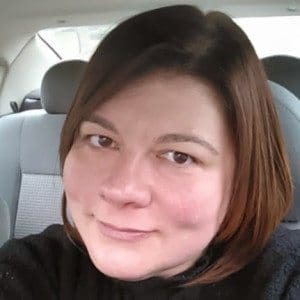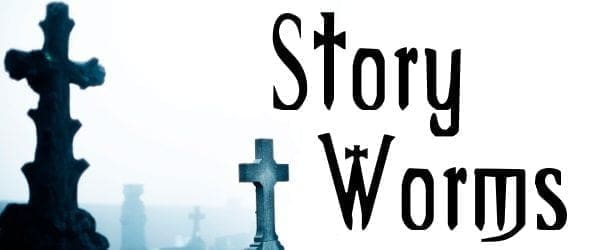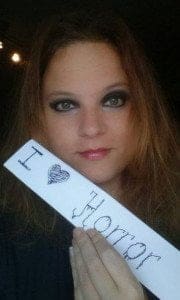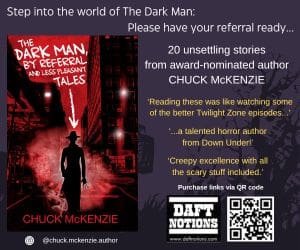
 Women in Horror Month (WiHM) assists female genre artists in gaining opportunities, exposure, and education. Every February, supporters host events, write blogs and articles, conduct interviews, and create videos and podcasts supporting the achievements of women involved in the most extreme storytelling genre: horror.
Women in Horror Month (WiHM) assists female genre artists in gaining opportunities, exposure, and education. Every February, supporters host events, write blogs and articles, conduct interviews, and create videos and podcasts supporting the achievements of women involved in the most extreme storytelling genre: horror.
As part of WiHM, I have interviewed fellow female horror writer, Chantal Noordeloos. When she’s not raising her supervillain daughter, Chantal writes the stories that haunt her most. She’s a self-proclaimed genre floozie, who battles demons as easily as she travels through rips in space and time. If she had a warning label, it would read: “Warning, contains shenanigans.” You can visit her website at www.chantalnoordeloos.info
How did you first get interested in horror, and what prompted you to write in that genre?
My fascination with horror starts with the aesthetics of it all, there is elegance in darkness. There is a combination of shock and disgust, often mixed with a morbid form of beauty. I think fear is a big factor in why horror is so appealing. Many of us are drawn to that emotion, and as long as it is controlled, it is entertaining. My love for writing horror comes from being scared of everything. It started when I was a child, being alone in the dark terrified me. As soon as the lights went out, my brain would start to torment me, and conjure up the most horrific images. As a little girl I would protect myself from monsters with a big pile of cuddly toys. I would battle my own fears by telling scary stories. At least that way I could share them with others, and that took the sting off. Even now, I sometimes use the topics that really frighten me, as a way to ‘cast out my personal demons’, so to speak. Being afraid helps with the inspiration.
How do people react when you tell them you write horror?
People who know me won’t even flinch, and if they’re surprised or shocked, they don’t show it. I am not sure what that says about me? Maybe it says more about the people I know? I’ve always had an affinity with horror, even when I was younger. I would run role-play games that were horror themed. To be honest, I had a bit of a reputation for being a ‘horror Dungeon Master’. I liked nothing more than scaring the living day lights out of the people who played these games with me. The sadist in me would get great pleasure out of making people scream. As for strangers… I don’t get a lot of reactions to the themes I write. The worst I’ve had was people pulling up their noses and telling me they’re not horror fans.
You started out writing short stories. How does writing shorts differ to writing full-length works?
Writing short stories is a whole different ball game. In a short story, you need to tell a lot in only a few words. The disadvantage of this is that you have to omit a lot of back story, and you need to be very selective with your descriptions. There is no time for a slow build up, and you can’t ease your reader into the setting, or get them slowly acquainted with your characters. The advantage is that you don’t struggle with things such as pacing and plot holes. At least, not on the whole. I never have to outline a short story, all I need is to know how the story will end, and I’m good to go.
Novels are a different matter, I need to make a lot of notes, or I’ll write myself into a corner. Longer work requires a lot more attention, I’ve been known to mix up hair and eye color in minor characters.
For the record, I enjoy both. I do, however, need to be in the right frame of mind for either one. I find it very difficult to write a short story in between writing a novel, (I speak from recent experience) and vice versa, I struggle writing a novel after having written several short stories.
Why do you think horror is such a male dominated genre? How can women address this?
That’s a tricky question. It’s not just one reason why horror is male dominated, I think there is a lot to this topic. Let me try and give a shot at answering some of it.
Most genre fiction, with the exception of romance, children’s books and young adult, is male dominated. Certain genres, like horror and science fiction, have a bit of a gender label on them. I think this stems from the 19th century, where people believed that women were still delicate little flowers that should be protected from the unpleasantness in the world. Of course, nowadays we know this is baloney, but some stereotypes are difficult to break.
A lot of people use the argument that ‘women don’t write horror’, and that’s bull. There may be less female authors out there than male in the genre, but we’re there… and there are quite a few of us. What I’ve learned so far is that quite a few people shy away from female authors. What I suspect is that people assume that if horror is written by a woman, it will automatically focus on romance somehow. I’ve been told that women can’t write ‘real horror’, and that we don’t go as ‘deep’ or as ‘far’ as men do. To anyone who thinks that, I invite you to read my novel, or even my short stories. There is little I shy away from. I write brutal stuff.
Maybe we’re still quite invisible because female horror writers haven’t been as prolific over the past four centuries. We have Mary Shelley, who is our champion in Gothic horror, but women didn’t start getting a bit of fame in the genre until much later in the twentieth century. So we have a lot of catching up to do. I hope that things will change over time, that women will get more of a chance in the horror genre. We really do deserve it.
Do I think women can write a type of horror that men can’t? No I don’t. I don’t think women can write more emotional depth than men, just like I don’t think men can write better gore than women. It’s all up to the individual writer.
What are you working on now?
At the moment I’m working on the first novel in a series called Celestials (I haven’t come up with a title for the novel itself yet. Coming up with titles tends to be a long, and rather dramatic process for me, with lots of gasping, sighing and eye rolling). This series intertwines with my Lucifer Falls series (the first book of that is Angel Manor) and focuses around angels and demons. I’m not sure if this will be a horror series yet (Lucifer Falls is definitely horror, some would even say extreme horror) but Celestials will definitely be dark fiction.


 As part of Women in Horror Month I interviewed fellow female horror writer, N.M. Scuri. She is a short story author, novelist, college instructor, and editor. She holds a Master’s Degree in English Literature from the State University of New York at Stony Brook, and her work has appeared in The Spectral Times, among others.
As part of Women in Horror Month I interviewed fellow female horror writer, N.M. Scuri. She is a short story author, novelist, college instructor, and editor. She holds a Master’s Degree in English Literature from the State University of New York at Stony Brook, and her work has appeared in The Spectral Times, among others.











